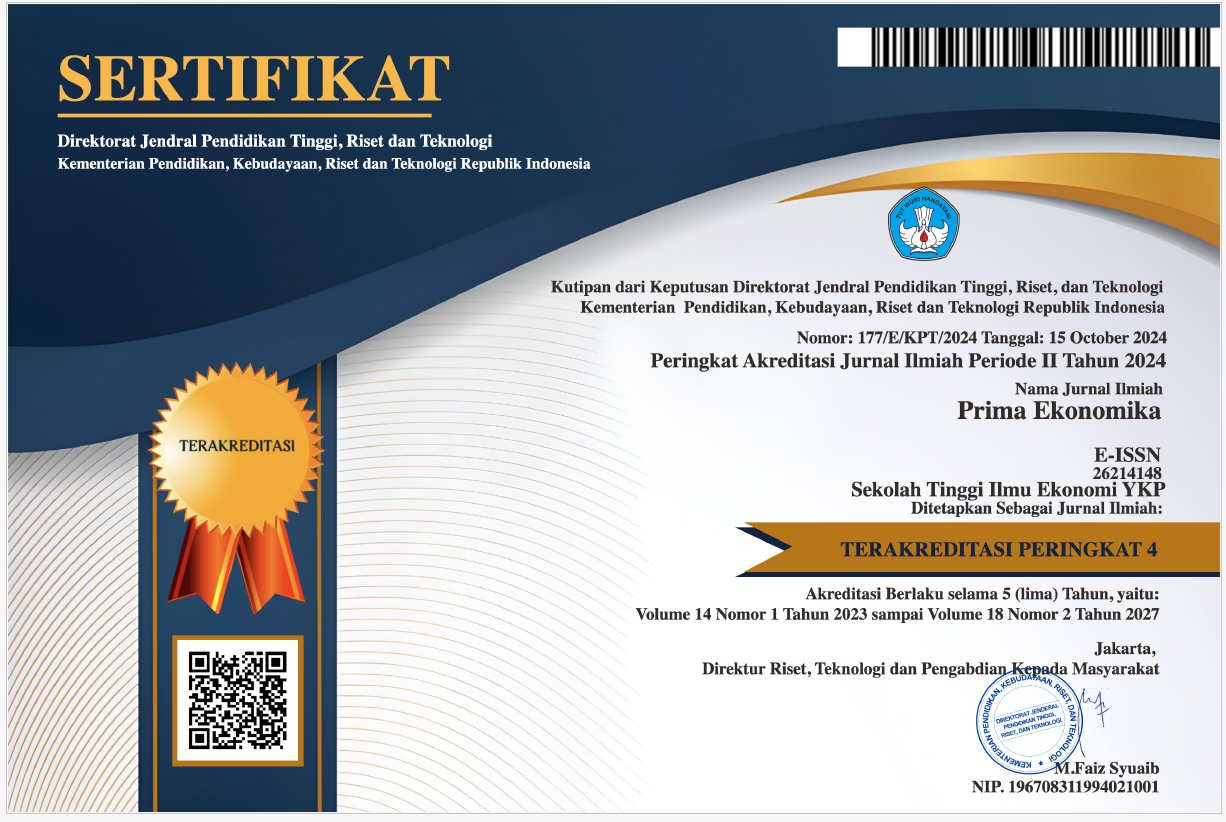BEBERAPA FAKTOR YANG MEMPENGARUHI HARGA SAHAM PADA PERUSAHAAN YANG TERDAFTAR DI BURSA EFEK INDONESIA
Abstract
The research is purposed to observe the influence of Dividend Per Share
(DPS), Earning Per Share (EPS), Return On Investment (ROI), and Net Profit
Margin (NPM) to Share Price (SP) of the listed companies in Indonesian Stock
Exchange.
The research is a causality research which observes what and how so far the
influence of DPS, EPS, ROI, and NPM to SP of the listed companies in Indonesian
Stock Exchange. Field research is direct field approaching to obtain primary data
from some available resources in correlation to the research. Classical assumption
tests are treated to test the prerequisite analysis for hypothesis exam of linear
regression model, it consists of normality-test, multi-colinearity-test,
heteroscedastisity-test, and autocorrelation-test of the research data.
The research results show that DPS gives a positive and significant influence
to SP with counted t = 11.552 > t-table and p = 0.000 < 0.05), it implicates that a
good DPS (liquidity) will give then a potential profit for HS increasing; EPS gives
a positive and significant influence to SP with counted t = 13.800 > t-table and p =
0.000 < 0.05, it implicates that sales growing will increase company profit and SP;
ROI gives a positive and insignificant influence to SP with counted t = 1.810 < t-
table and p = 0.073 > 0.0, it implicates that the company hasn’t good performance
to get good profit and attract investors permanently investee and small increasing
of SP; NPM gives a positive and insignificant influence to SP with counted t 0.826
< t-table and p = 0.411 > 0.05, it implicates that a great NPM doesn’t give
contribution yet to company and investor getting optimal SP. DPS, EPS, ROI, and
NPM give a positive and significant influence to SP with counted F = 96.566 and p
= 0.000 < 0.05. However, the Adjusted R2 value is 0.758; it means that the four
independent variables can describe the change of independent variable SP in order
of 75.8%, whereas the rest 24.2% is described by other factors excluding proposed
four independent variables in this research.













.png)

